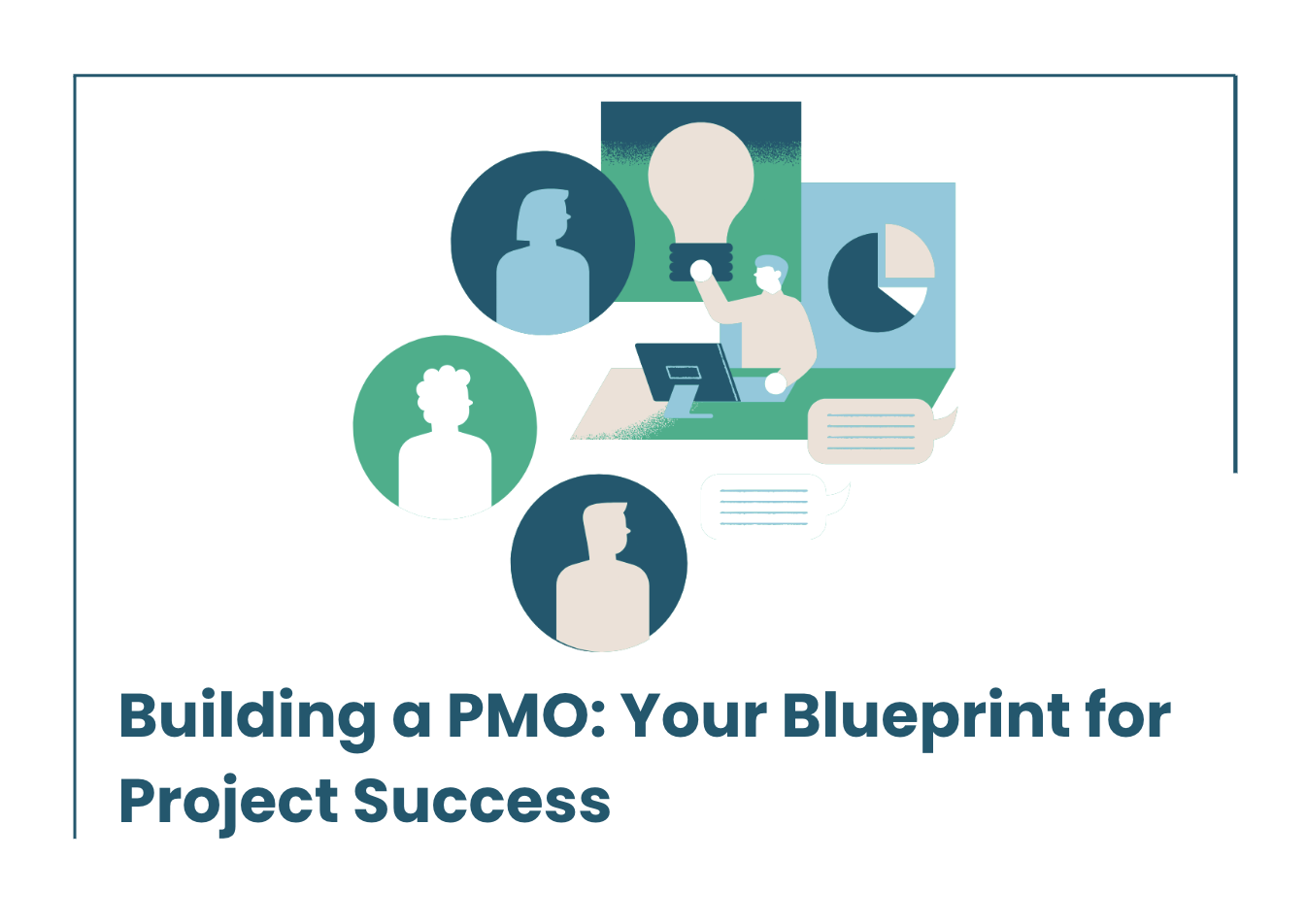In today’s fast-paced business landscape, many organizations struggle with inconsistent project intake processes, leading to inefficiencies, misaligned priorities, and missed opportunities. Without a structured approach, projects often get launched on impulse, lacking the strategic direction and resource planning required to succeed.
So, how can a company establish a cohesive project management strategy that drives corporate goals forward? The solution is straightforward yet powerful: develop and implement a Project Management Office (PMO). A well-designed PMO empowers teams to make the most of available resources, enhance decision-making, and execute projects with precision and consistency, setting the foundation for sustained success.
In this blog article, we’ll explore the key steps to building an effective PMO, from defining its role within your organization to setting up processes that foster collaboration and accountability. Whether you’re starting from scratch or looking to enhance an existing PMO, these insights will guide you toward creating a project management blueprint that sets your organization up for long-term success.
Defining a PMO
A Project Management Office (PMO) is like a central support system within an organization, designed to make project management smoother and more effective. Think of it as the backbone for all project-related activities, ensuring they’re in sync with the company’s big-picture goals. By setting clear standards and processes, a PMO helps everyone involved make smart, consistent decisions about where resources go, how projects are prioritized, and how they’re managed.
One of the PMO’s main roles is to create accountability. It acts as a checkpoint, providing transparency on how projects are progressing and helping leaders stay informed with reliable metrics and reports. This way, potential issues can be spotted early, and teams can keep projects on track with clear expectations.
Beyond that, a well-implemented PMO drives efficient execution. With streamlined processes in place, teams are empowered to deliver projects on time, within budget, and with the quality stakeholders expect. Ultimately, a PMO helps companies make the most of their resources, improve project outcomes, and move closer to achieving their strategic vision—benefiting both the organization and everyone it serves.
Developing A PMO Framework
Developing a PMO framework begins with creating a charter—essentially a playbook that sets the foundation for how your Project Management Office operates. This charter outlines the PMO’s mission, objectives, and standards, serving as a roadmap for all project-related activities within the organization. One of the first steps in building this framework is to establish clear objectives that align with the company’s strategic goals. These objectives help ensure that every project managed by the PMO is driving meaningful value and contributing to the organization’s success.
Understanding what qualifies as a project is also fundamental. By defining criteria for what constitutes a project, the PMO can better identify and select initiatives that align with its objectives. This focus helps direct resources and efforts toward projects that have the greatest potential impact, optimizing resource allocation and ensuring efficiency. An essential part of the framework is also determining which projects are subject to the stage gate process. The stage gate process is a phased project management approach that divides a project into distinct stages, separated by decision points or "gates." At each gate, the project is evaluated, and a decision is made to proceed, make adjustments, or discontinue if it fails to meet set standards. Factors such as project complexity, strategic importance, and resource demands are typically assessed at each gate to maintain alignment with the organization’s priorities.
The PMO charter also defines the project team, establishing roles and responsibilities for each member. It sets a clear timeline, which adds accountability and ensures all stakeholders understand their roles in driving the project forward. By laying out these elements in a comprehensive charter, the PMO creates a structured, cohesive approach to project management that supports decision-making, accountability, and execution.
Challenges in Establishing and Maintaining a PMO
Building and running a PMO can be transformative, but it also brings a few common challenges. One major hurdle is resistance to change. Implementing a PMO often means new processes and standards, which can disrupt established ways of working. Teams may push back, especially if they feel their autonomy is being compromised. To ease this transition, clear communication is key—help teams understand how the PMO will streamline workflows, improve consistency, and ultimately make their jobs easier. Engaging teams in the PMO’s development can also foster buy-in and reduce resistance.
Another critical challenge is securing executive support. Without strong backing from senior leadership, a PMO may struggle to gain the authority and resources it needs to succeed. Executive buy-in ensures the PMO is viewed as a strategic asset rather than just an added layer of oversight. PMO leaders should actively communicate progress and measurable benefits to show how the PMO contributes to the organization’s broader goals.
Resource allocation conflicts can also arise, particularly when multiple projects compete for the same resources. To address this, PMOs should establish transparent criteria for project prioritization and resource allocation. Successfully navigating these challenges requires strong leadership support, effective communication, and a focus on proving the PMO’s value through measurable outcomes.
Establishing a PMO is a strategic step that brings structure, efficiency, and alignment to your organization, helping it run like a well-oiled machine. With the right processes and support in place, a PMO empowers your teams to deliver projects more consistently and effectively, driving long-term success.
At Louder Co., we adopt a holistic approach to AI, and help business establish strategic processes, ensuring your business not only maximizes ROI but also successfully achieves its goals. If you're prepared develop your PMO but don’t know where to start, contact us today!


